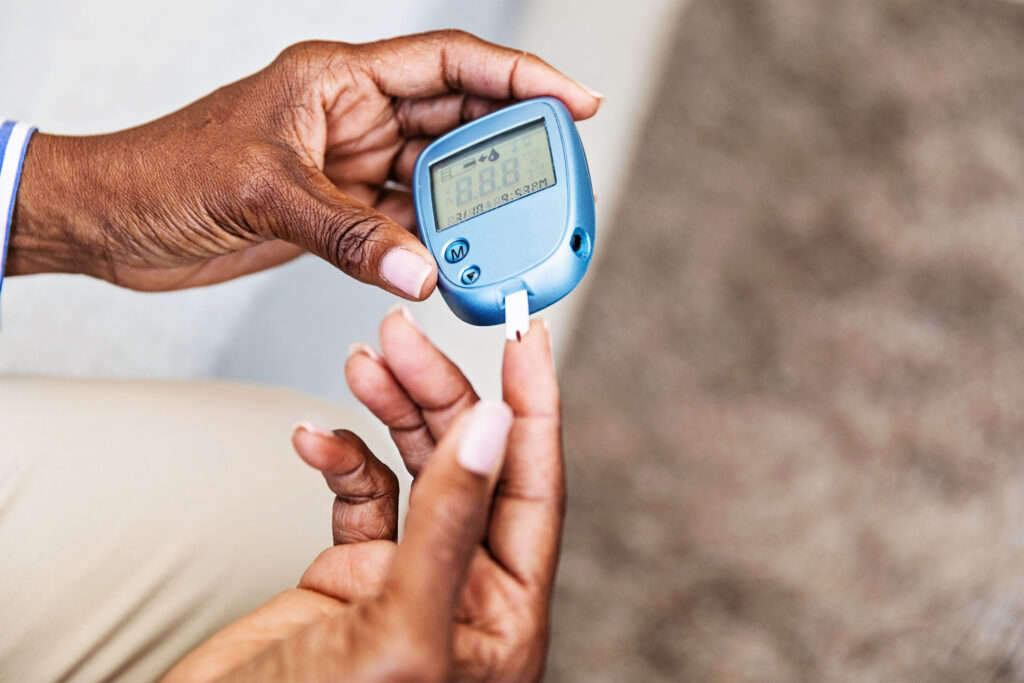Understanding Blood Sugar in Diabetes Management: Factors Affecting Glucose Levels
Managing blood sugar is a paramount concern for individuals living with diabetes, as it plays a pivotal role in maintaining overall health. Successful blood sugar management involves vigilant monitoring and striving to spend more time within the target glucose range. Gaining insight into the underlying biology of blood sugar and its influencing factors is crucial for confidently managing diabetes.
Demystifying Blood Sugar
Blood sugar, often referred to as blood glucose, denotes the concentration of glucose in the bloodstream. Glucose, a simple sugar molecule, serves as a primary energy source for the body, facilitating various bodily functions, including brain activity. Fill out this form to check if you or a friend qualify for CGMs.
The Influence of Carbohydrates
Carbohydrates in our diet are the primary source of glucose; however, glucose can also originate from sources not typically associated with carbohydrates. For instance, lactose in dairy products is converted into glucose within the body.
When we consume and digest food, glucose enters the bloodstream. Subsequently, as blood sugar levels rise, the pancreas releases insulin, a hormone enabling glucose absorption into body tissues for energy utilization.
Must Read CGMs in noncritical care hospitals optimizes glycemic control
Diabetes and the Role of Insulin
In individuals with diabetes, issues related to insulin in the body can lead to elevated blood sugar levels, commonly referred to as hyperglycemia.
Type 1 diabetes is characterized by an autoimmune response that destroys beta cells in the pancreas, rendering it incapable of producing insulin. In type 2 diabetes, the pancreas either produces insufficient insulin or the body exhibits resistance to its effects.
Key Factors Influencing Blood Sugar in Diabetes
Managing blood sugar in diabetes necessitates intervention as the body can’t autonomously regulate glucose levels. These interventions include medications, insulin, dietary choices, physical activity, and overall health maintenance. Consultation with a healthcare provider is essential to devise an effective diabetes management plan.
Given the manual control required in diabetes management, understanding the factors affecting blood sugar levels is crucial. Medications and insulin can mitigate high blood sugar (hyperglycemia), but they can also inadvertently induce low blood sugar (hypoglycemia) when used excessively.
Numerous Influential Factors
Various interconnected factors impact blood sugar, with approximately 42 factors identified by diabetes experts. Although it may seem overwhelming, focusing on everyday elements like diet, physical activity, and sleep is a sensible starting point.
Read Guide about Wegovy Dosage Guide: The Best Way For Weight Loss
Post-Meal Blood Sugar
Blood sugar levels are directly influenced by food and beverage consumption. Thus, dietary choices play a fundamental role in diabetes management.
Tailoring your diet to your unique needs is essential, as what works for one person may not be suitable for another. Some basic guidelines include maintaining a consistent eating schedule, balancing carbohydrate intake with insulin doses, and being prepared with snacks to prevent hypoglycemia.
Must read about Managing Low Blood Sugar Overnight With Dexcom G6
Hydration’s Impact
Water is an ideal beverage for individuals with diabetes as it contains no carbohydrates or sugar. Consistent water intake helps prevent dehydration, which can be triggered by elevated blood sugar. Pay attention to water consumption, particularly in hot weather, as it can affect insulin absorption.
Alcohol’s Influence
Alcohol’s impact on blood sugar varies. Moderate alcohol consumption can enhance insulin sensitivity, aiding blood sugar management. However, excessive alcohol intake or drinking on an empty stomach can induce hypoglycemia as the liver prioritizes alcohol metabolism over blood sugar regulation. It is advisable to consult with a healthcare provider and make informed choices when consuming alcohol.
Exercise and Blood Sugar
Physical activity can lower blood sugar levels by increasing insulin sensitivity in the body. Regular exercise allows muscles to utilize glucose for energy, regardless of insulin availability. Talk to your doctor or other healthcare expert to find out what kind of fitness routine is best suited to meet your individual requirements.
The Sleep-Blood Sugar Connection
Lack of sleep can elevate blood sugar levels in individuals with diabetes, emphasizing the importance of adequate rest. Maintaining good sleep hygiene positively impacts glucose management, contributing to overall well-being.
Tracking and Monitoring
Monitoring your glucose levels is a continuous task. Keeping a record of unexpected fluctuations in glucose levels and discussing them with your healthcare provider is essential to understand your body’s unique triggers.
In summary, comprehending the intricacies of blood sugar and the factors affecting it is instrumental in effective diabetes management. Consultation with a healthcare provider and a personalized approach to diet, hydration, exercise, and sleep are pivotal for achieving optimal blood sugar control.


